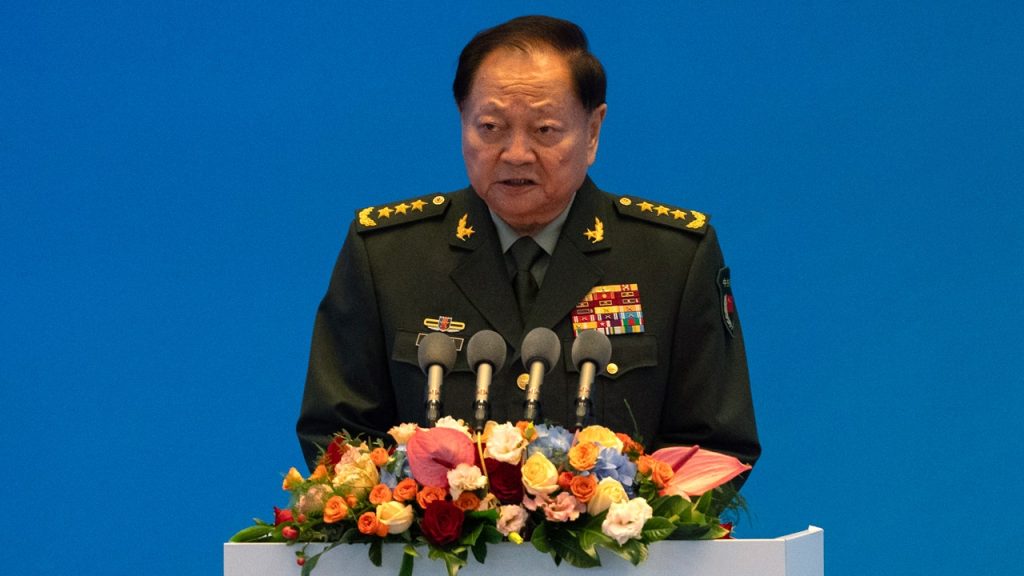One of China’s top military leaders, Zhang Youxia, spoke at the 19th biennial meeting of the Western Pacific Naval Symposium in Qingdao, China, stating that the country would strike back with force if its interests came under threat. The symposium, attended by representatives from various countries, highlighted China’s significant military expansion over the past two decades, including the construction of three aircraft carriers. Zhang emphasized China’s territorial claims, especially in the Taiwan Strait and the East and South China Seas, despite international disputes over these claims. China has also created artificial islands and military infrastructure in the highly contested Spratly Islands and remains firm in its stance on territorial sovereignty and core interests.
Zhang reiterated China’s commitment to defending its territorial sovereignty and core interests, including the reunification of Taiwan, which it claims as its own territory. Taiwan has been strengthening its defenses with help from the U.S., with Congress recently approving $8 billion in military aid for Taiwan and providing upgrades to its military hardware. Zhang’s remarks reflect China’s firm stance on resolving maritime disputes through friendly consultations while also emphasizing that they will not allow their good faith to be abused. The Chinese military remains prepared to take justified actions to defend its rights in accordance with the law.
China’s military has undergone a significant shakeup in recent months, with the disappearance of former Defense Minister Li Shangfu and several top officers in the missile corps. The recently appointed head of the Russian navy, Adm. Alexander Moiseyev, also attended the symposium, further showcasing the cooperation between China and Russia in search and rescue operations and their alignment against the prevailing U.S.-led Western liberal order. This alignment includes multiple drills conducted by the Chinese and Russian navies, but China has refrained from criticizing Russia’s invasion of Ukraine. Russia, on the other hand, has faced challenges with sea drones developed by Ukraine, which have successfully struck Russian navy ships in the Black Sea.
The symposium comes at a time of heightened tensions in the region due to China’s assertive actions, particularly in the South China Sea and Taiwan Strait. Zhang’s comments reflect China’s unilateralist approach to foreign relations and military conflicts, aligning with the policies of President Xi Jinping, who has eliminated all dissenting views within the Party. Despite China’s commitment to resolving maritime disputes through friendly consultations, the country remains firm in defending its territorial sovereignty and core interests, even if it means using force to bring Taiwan back under its control.
China has invested significantly in its military capabilities over the past two decades, becoming the world’s largest navy by the number of hulls. This expansion has raised concerns among neighboring countries and international partners, leading to increased tensions in the region. While China continues to promote cooperation and dialogue with other countries, its actions in the South China Sea and Taiwan Strait have raised questions about its intentions and regional ambitions. As China continues to assert its territorial claims, the international community will closely monitor developments in the region and the implications for regional stability and security.


